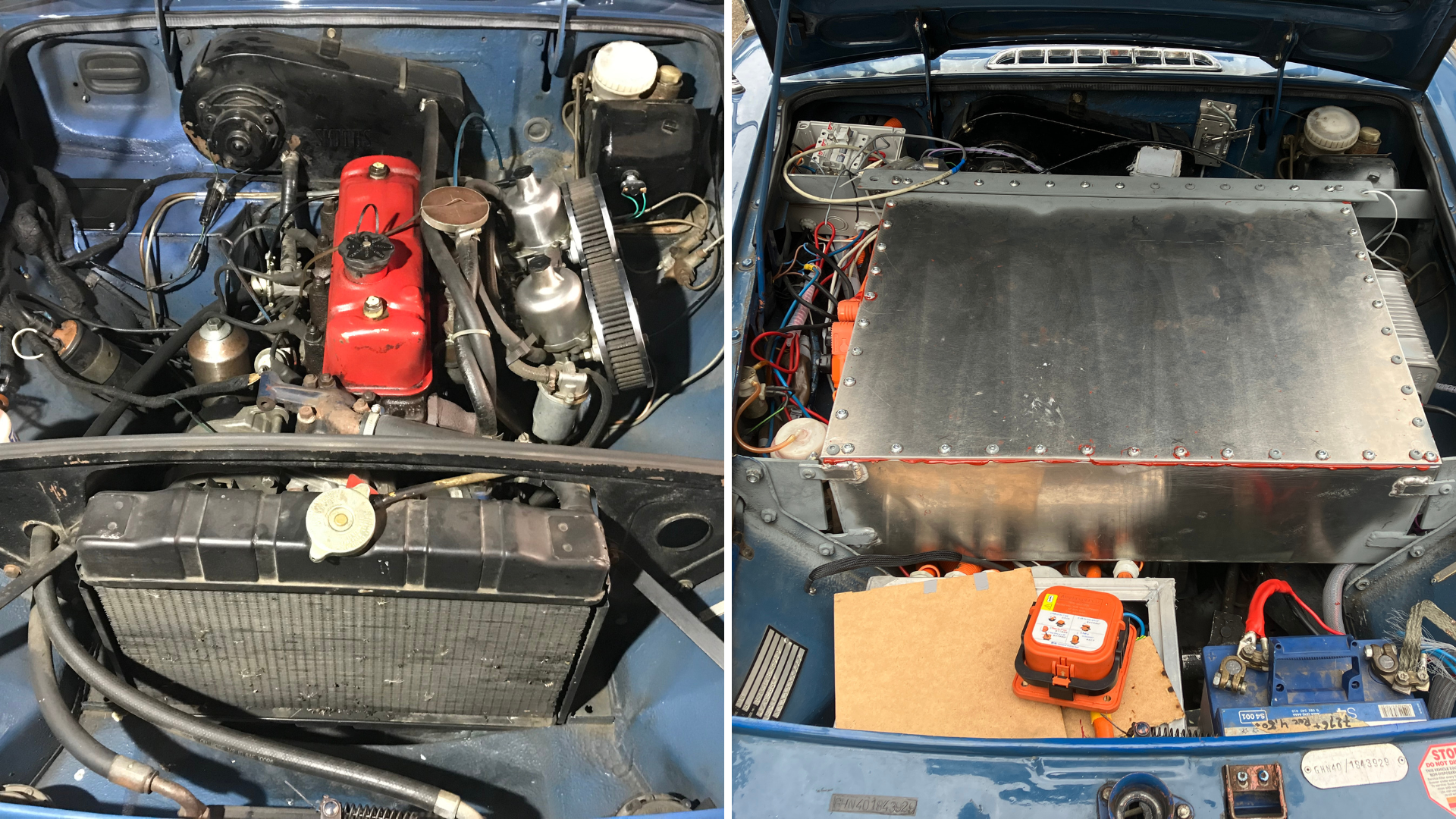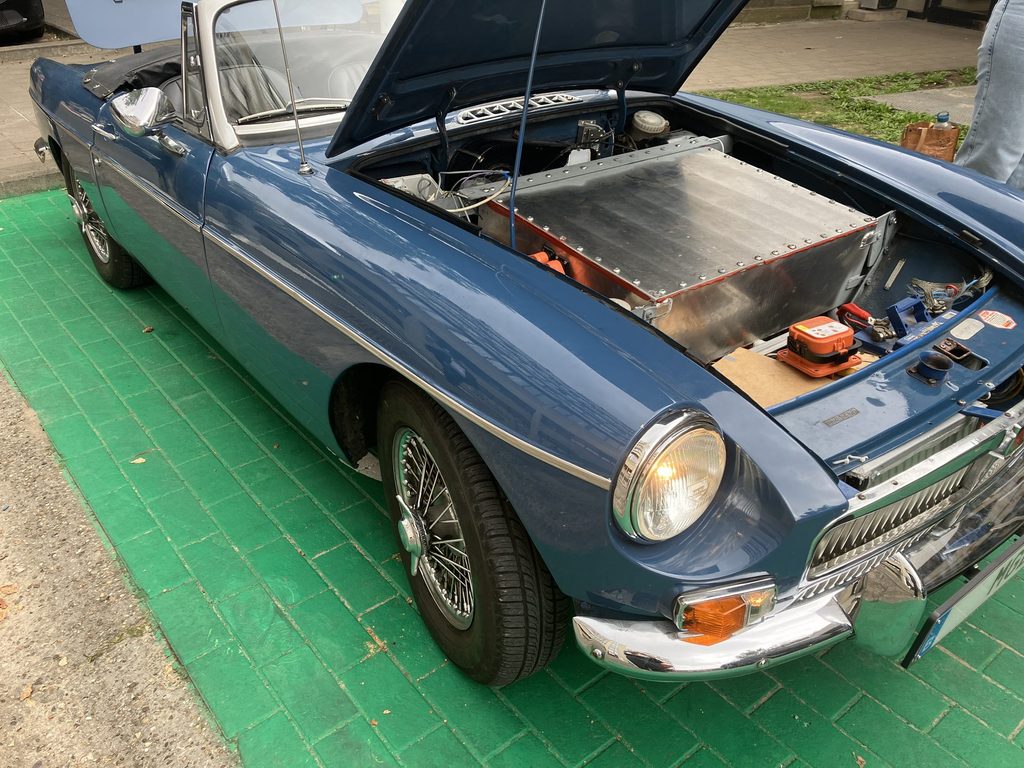While pleasing to the eye, many people loathe classic cars for their roaring motors and polluting smell. The practice of retrofitting – the conversion of a combustion-engine car to an electric car – is helping to repair their damaged reputation, including in Belgium.
On Wednesday, what is thought to be the first MGB classic car was presented to the public at the University of Brussels (VUB). Stefan Sallinger, the promoter of the project, converted his retro vehicle to make it more eco-friendly, aligning his childhood dreams with his current values.
"Since I was young, I dreamt of driving an MGB, so when I finally owned one, it really was a childhood dream come true," he told The Brussels Times. "However, my family soon pointed out that, as someone who advocates for sustainability, I shouldn't be driving a petrol car, and certainly not with a vintage car."
Together with engineering students at VUB, he took up the challenge to retrofit an old MGB. The case was originally set up as a purely theoretical research project, but very quickly, and with the approval of Sallinger, it derailed into a practical case, involving both tools from the garage and high-end laboratory equipment.
Simple, in theory
The process seems simple on paper. Take a classic car, remove the engine, the petrol tank and a few more parts and replace everything with a contemporary battery pack and a suitable electric motor.
"But soon you bump into a lot of issues," said Sallinger, mainly relating to stability and ensuring the weight distribution doesn't deviate from that of the old MGB by more than a few per cent at most.

The motor of the car, before and after the retrofitting. Credit: Lauren Walker/ The Brussels Times
"The biggest challenge was fitting the battery cells, which are now distributed over four different places in the car. The motor is in the same place and the gearbox is retained, although it will feel more like driving a semi-automatic, as mainly the third and fourth gears will be used."
The size of the battery allows the car can travel a distance of 200km. Still, the final result has led to the car being more efficient than before. The petrol tank and engine weighed 300 kg, while the elements that replaced it weighed around 270kg.
"There is probably a reasonable market for converting old cars. By the way, there are already some companies abroad offering the conversion. In Belgium, too, interest is high and there are already start-ups ready to get started, only they are still waiting for a legal framework," Sallinger explained.
Belgian rarity
This is not the first retrofitted MGB: the concept of transforming old cars and other fossil-fuel vehicles into electric vehicles has existed for years and is commonplace in countries like France and Germany, where legislation for this was introduced a long time ago.
Belgium has been dawdling for some time over the legal framework for retrofit, but in June this year, a Royal Decree finally came into force, which will regulate the retrofitting of old cars in the future.
However, before drivers can take to the streets with a converted old car, a regional law on the homologation is needed. Sallinger expects that this will be passed in Brussels in November or December. From this point on, cars can be homologated and registered in Belgium, resulting in less waste, as old cars can be reused in a circular system.

Credit: Lauren Walker/ The Brussels Times
In the future, Sallinger intends to include other vehicles, such as small fossil-fuelled vehicles used on a daily basis, taking into account a profitable business and economic model that responds to the needs of people in Brussels and Belgium.
However, the economic aspect is still an issue as converting a car in this way costs between €20,000 and €30,000, of which the batteries are the biggest burden.
In Germany, €10,000 of the total cost is refunded, slightly reducing the price tag. Master students from ULB are looking at the socio-economic aspects of such a retrofit car in a number of financial cases including both the conversion of a (small) family car and a vintage car as well as a van.
Sallinger also added that true lovers of old-timers are not always enthusiastic about the project. "They think everything about an old-timer should remain original. So there is only a very small niche in the market. But we must realise that a switch to more sustainable alternatives is also needed here," he concluded.

